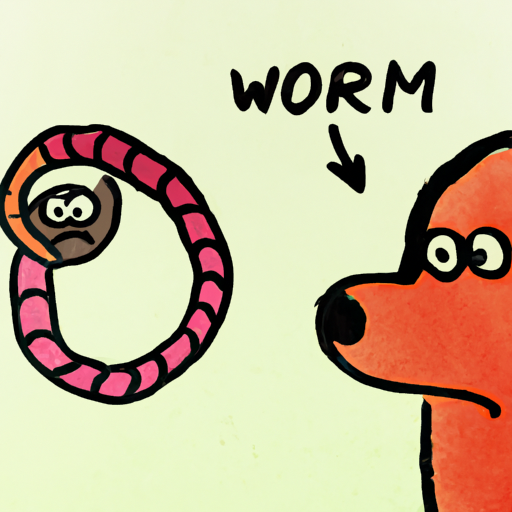If you’re a caregiver for a furry friend, you’re likely familiar with the term ‘worms’ in relation to your pet’s health. However, have you ever wondered, what is round worm in dogs? Simply put, roundworms are a common type of parasitic worm that can infest your dog’s intestines. This article aims to provide in-depth insights on this topic and equip you with knowledge to identify and address this health issue in your canine companion.
Table of Contents
- Understanding Roundworms in Dogs
- Common Symptoms of Roundworms
- How Dogs Contract Roundworms
- Diagnosing and Treating Roundworms
- Preventing Roundworm Infestations
- Frequently Asked Questions
Key Takeaways
- Roundworms are common parasites in dogs, especially puppies.
- Symptoms include vomiting, diarrhea, and a pot-bellied appearance.
- Roundworms are contracted through contaminated soil or feces, or from mother to puppy.
- Diagnosis is typically through a fecal sample, and treatment involves deworming medications.
- Prevention involves regular fecal checks and deworming, as well as maintaining a clean environment.
Understanding Roundworms in Dogs
Roundworms, scientifically known as Toxocara canis, are the most common type of intestinal worm in dogs. They are long, white, and spaghetti-like in appearance. Notably, roundworms are more prevalent in puppies, but they can affect dogs of all ages.
According to American Kennel Club, a severe roundworm infection can lead to serious health problems, including damage to the liver and lungs, and in rare cases, can cause blindness in humans.
Common Symptoms of Roundworms
Symptoms of roundworms in dogs can vary based on the severity of the infestation. Here are some common signs that your pet may have roundworms:
1. Distended, pot-bellied appearance
2. Vomiting or diarrhea
3. Weight loss despite a good appetite
4. Dull fur
5. Coughing if the roundworms have migrated to the dog’s lungs
If your dog shows any of these symptoms, it’s essential to consult with a veterinarian immediately. You can find more information on how to care for a sick dog here.
How Dogs Contract Roundworms
Dogs can contract roundworms in several ways. Puppies can get them from their mother, either in utero or through her milk. Dogs can also ingest roundworm eggs from contaminated soil or feces. In some cases, dogs can get roundworms by eating an infected rodent.
Understanding the sources of infection is crucial in preventing roundworms. You can find more information about disease prevention in dogs here.
Diagnosing and Treating Roundworms
Diagnosis of roundworms in dogs typically involves a fecal sample analysis. If roundworm eggs or larvae are present, the veterinarian will prescribe a course of deworming medication. This treatment is usually repeated in a few weeks to ensure all the roundworms are eradicated.
Remember, it’s important to administer the full course of medication to ensure complete treatment. There is more information on medication compliance for dogs here.
Preventing Roundworm Infestations
Preventing roundworm infestations involves several steps:
– Regular fecal checks and deworming as recommended by your vet
– Maintaining a clean environment to prevent contamination
– Preventing your dog from eating rodents or other animals
Frequently Asked Questions
1. Can humans get roundworms from dogs?
Yes, humans can get roundworms from dogs, although it is rare. The most common way for humans to contract roundworms is by accidentally ingesting contaminated soil or dog feces.
2. Can roundworms in dogs be fatal?
In severe cases, roundworms can cause significant health problems and can potentially be fatal, especially in puppies.
3. How long does it take to get rid of roundworms in dogs?
The length of treatment can vary depending on the severity of the infestation. Usually, a course of deworming medication lasts for a few weeks.
4. How can I prevent my dog from getting roundworms?
The best way to prevent roundworms is through regular fecal checks and deworming, as well as maintaining a clean environment and preventing your dog from eating rodents or other animals.
By understanding what roundworms are and how they affect your dog, you can ensure your pet remains healthy and worm-free. Always consult with a veterinarian if you suspect your dog may have roundworms or any other health problem.



